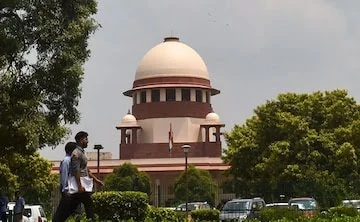Bilkis Bano: The Supreme Court on Thursday dismissed the Gujarat government’s plea seeking a review of its January 8 verdict, which had canceled the remission granted to 11 men convicted of gang-raping Bilkis Bano and murdering seven of her family members during the 2002 Gujarat riots. The state’s plea sought to challenge certain “adverse” observations made by the court against the Gujarat government in its ruling.
Supreme Court Rejects Gujarat Government’s Plea to Review Bilkis Bano Convicts’ Remission Cancellation
The Gujarat government argued that the Supreme Court had made an “error apparent on the face of the record” by accusing the state of “usurpation of power” and “abuse of discretion” in granting remission to the convicts. The state contended that it had merely followed a previous order issued by another bench of the top court, and no adverse inference could be drawn for not filing a review petition against the May 13, 2022, judgment.
However, a bench of Justices BV Nagarathna and Ujjal Bhuyan rejected the state’s review petition, stating, “Having carefully gone through the Review Petitions, the order under challenge, and the papers annexed therewith, we are satisfied that there is no error apparent on the face of the record or any merit in the Review Petitions, warranting reconsideration of the order impugned.”
The case dates back to 2002, when Bilkis Bano, who was 21 years old and five months pregnant at the time, was gang-raped while fleeing the Gujarat riots
The case dates back to 2002, when Bilkis Bano, who was 21 years old and five months pregnant at the time, was gang-raped while fleeing the Gujarat riots. Her three-year-old daughter and six other family members were brutally killed during the attack. In 2008, 11 men were convicted of these crimes and sentenced to life imprisonment.
However, on August 15, 2022, the Gujarat government released the convicts under its remission policy, sparking nationwide outrage. On January 8, 2024, the Supreme Court ruled that the Gujarat government did not have the authority to grant remission, as the trial had been conducted in Maharashtra. The court ordered the cancellation of the remission and directed the convicts to surrender.
The top court emphasized that the release of the convicts was in “violation of the law” and underscored that the judiciary must uphold the rule of law to prevent a “dangerous state of affairs” in the country’s democracy.
Keep watching our YouTube Channel ‘DNP INDIA’. Also, please subscribe and follow us on FACEBOOK, INSTAGRAM, and TWITTER


